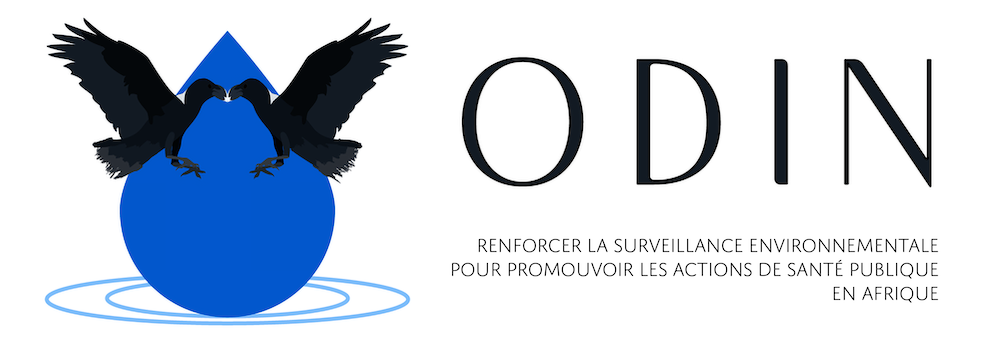
main institution: Lund University
Principal investigator: Rolf Lood
Objective :
Establish a genomic epidemiology network including all projects funded by the HORIZON-JU-GH-EDCTP3-2022-CALL1-01-03 call and the HORIZON-JU-GH EDCTP3-2022-OA2 funded project that supports the activities coordination of the collaboration and brings together the contribution of the Gates Foundation.
organize periodic meetings of the genomic epidemiology network
Establish joint working groups on topics of interest.
Description of work and roles of partners:
Task 1: Governance of the genomic epidemiology network; Participants: All
Collaboration within the Genomic Epidemiology Network will be governed by a Collaboration Agreement and membership will include all participating projects that are bound by Article 7 of their grant agreements, namely EpiGen Ethiopia, GenPath Africa, GREAT-LIFE , PANGenS, ODIN, NGS4PublicHealth.
Task 2. Genomic Epidemiology Network Meetings; Participants: All
Des réunions régulières seront organisées, auxquelles assisteront les coordinateurs du projet, les responsables des work packages invités, les responsables scientifiques et les responsables des groupes de travail, ainsi que d'autres participants concernés, afin de suivre les progrès de la collaboration, d'identifier les opportunités de collaboration et d'échanger des expériences pour éviter la duplication des efforts. Le responsable de projet de l'Université de Western Cape, soutenu par un financement du projet "NGS4PublicHealth", sera initialement chargé d'organiser ces réunions, y compris l'organisation des groupes de travail, et servira de point de contact principal pour les bénéficiaires de subventions EDCTP3 de l'appel GH-EDCTP3-2022-CALL1-01-03. Après une certaine période, une coordination de réseau rotative parmi les bénéficiaires de l'EDCTP3 avec une représentation géographique adéquate sera mise en œuvre jusqu'à la finalisation de la durée des projets. Le(s) responsable(s) de projet du GH EDCTP3 JU sera(ont) également invité(s) aux réunions.
Les rapports des réunions seront mis à la disposition de la GH EDCTP3 JU sur demande et les résultats des réunions seront inclus dans le rapport annuel de mise à jour sur la collaboration entre les projets inclus dans les livrables D8.2.
Réf. Ares(2023)3463011 - 17/05/2023
Tâche 3. Mettre en place des groupes de travail conjoints ; Participants : Tous
Les groupes de travail conjoints seront les forums où tous les projets (EpiGen Ethiopia, GenPath Africa, GREAT- LIFE, PANGenS, ODIN, NGS4PublicHealth) collaborent sur des sujets d'intérêt commun (les sujets potentiels sont décrits ci-dessous).
Le mandat des groupes de travail sera approuvé, y compris la sélection des chefs de groupe de travail, des co-chefs de groupe (à tour de rôle si nécessaire) et des membres.
La liste des groupes de travail sera mise à jour lors de chaque réunion périodique du réseau, au cours de laquelle des amendements aux groupes de travail existants pourront être proposés et de nouveaux groupes de travail pourront être suggérés.
Les groupes de travail se réuniront virtuellement et, si nécessaire, lors de réunions en face à face. On peut également envisager qu'un ou plusieurs consortiums organisent des ateliers conjoints auxquels tous les partenaires du réseau sont invités à participer. Les frais de déplacement des participants seront couverts par le budget du projet auquel ils appartiennent.
Les procès-verbaux des réunions des groupes de travail seront mis à la disposition de l'EC EDCTP3 du GH sur demande et les résultats des discussions des groupes de travail seront inclus dans le rapport annuel de mise à jour sur la collaboration entre les projets inclus dans les produits livrables D8.2.
Les domaines de collaboration des groupes de travail devraient inclure, sans s'y limiter, les éléments suivants
1. technical working groups on the exploration, identification and implementation of synergistic actions between projects (or a subset of projects), for example working groups on actions that cover monitoring of the same disease and working groups on actions that cover the same approach to surveillance, for example environmental monitoring, development of new diagnostics, etc. The tasks of these groups include exploring and identifying synergies, sharing best practices and updating results, with the possibility of combining efforts to achieve stronger results.
2. Training
Tasks should include
i. Training coordination, organization and participation in joint training (e.g.
(e.g. NSW Academy training programs) as well as the development of relevant documents
relevant material/supporting documentation
ii. Curriculum alignment, including with the NGS Academy for PGS
iii. Online learning tools available on a common website
iv. Setting up a platform for former students and scholarship holders
v. Application of the gender mainstreaming strategy
3. Data standards and data integration platform design and implementation
Tasks should include
Contribution to PHA4GE working groups to develop or adapt standards and workflows.
Recognizing that there is no one-size-fits-all solution, this group does not aim to create a single data integration platform, but rather to share lessons, approaches and resources and harmonize approaches wherever possible .
4. Communities of practice
Tasks should include
a common approach to creating a community of practice in genomic epidemiology for public health in Africa, building on the IGP Africa
a strategy to integrate other relevant networks, such as the African Pathogen Diversity Network (PDNA)
Sharing of resources including study tools (SOPs, protocols, surveys, etc.) and publications, webinars, etc. as well as opportunities and best practices.
5. Communication and translation of policies
Tasks should include
developing visualization tools, policy brief templates and other communication tools to translate genomic epidemiology for different audiences, including policy makers
sharing best practices and lessons learned about what works and what doesn’t. Also learn from other experts and groups.
Drafting proposals for the sustainability of the genomic epidemiology network for relevant stakeholders.
